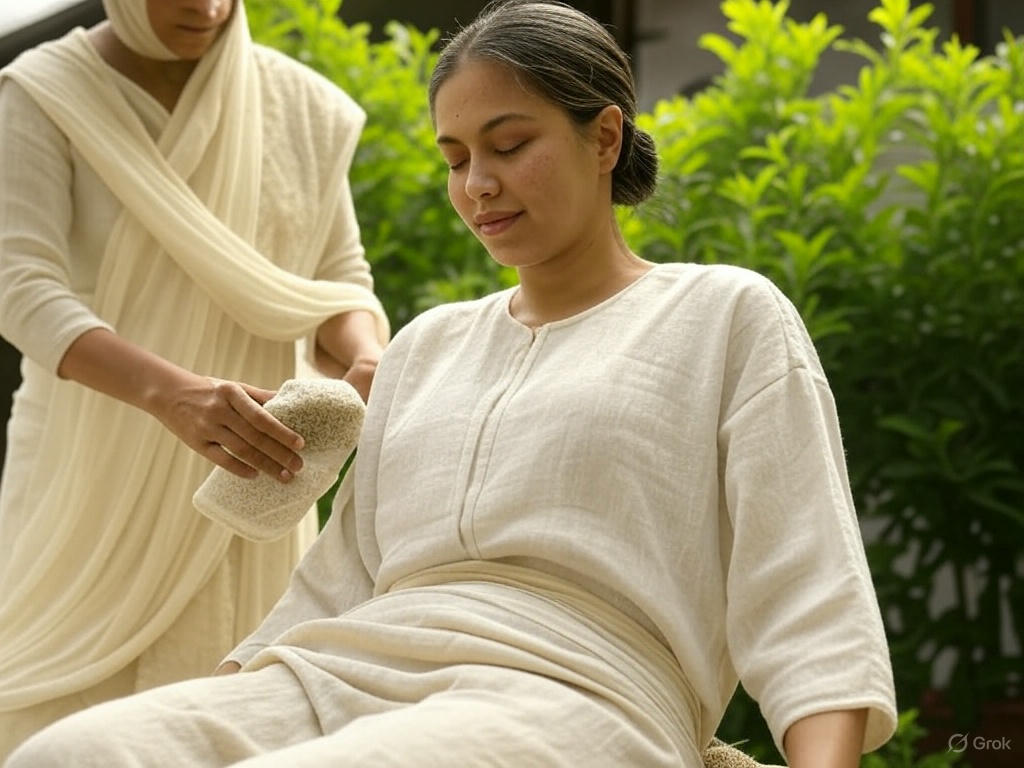- INFERTILITY TREATMENT
- BEST NIL SPERM AYURVEDIC TREATMENT IN INDIA
- MALE SEXUAL DISORDER
- FEMALE SEXUAL DISORDER
- PREMATURE EJACULATION
- ERECTILE DYSFUNCTION
- OLIGOSPERMIA
- NATURAL MENSTRUAL TREATMENT
- NATURAL MIGRAINE AYURVEDIC TREATMENT
- ASTHMA AYURVEDIC TREATMENT
- JOINT PAIN AYURVEDIC TREATMENT
- AYURVEDIC TREATMENT FOR LEUCORRHOEA
- AYURVEDIC TREATMENT FOR PILES
- AYURVEDIC TREATMENT FOR TONSIL PROBLEMS
- KIDNEY STONE AYURVEDIC TREATMENT GUIDE
- Ayurvedic Treatment for Acne – Natural & Lasting Solutions
- Ayurvedic Treatment for Cough
- Ayurvedic Treatment for Gallbladder Stones – Safe & Natural Relief
- Ayurvedic Treatment for Headache – Natural & Holistic Relief
- Ayurvedic Treatment for Sleeplessness – Natural Insomnia Remedies
- Ayurvedic Treatment for Uterus Cyst – Natural & Holistic Healing
- Ayurvedic Treatment for Uterus Swelling – Natural & Holistic Healing
- Ovary Cyst Ayurvedic Treatment
- Uterus Fibroid Ayurvedic Treatment
- Cholesterol Ayurvedic Treatment | American Hospital
- Hair Falling Ayurvedic Treatment
- Sinusitis Ayurvedic Treatment – Natural & Permanent Relief
- Fungal Infection Ayurvedic Treatment
- Urinary Tract Infection (UTI) Ayurvedic Treatment
- Ulcer Ayurvedic Treatment: Natural Healing for Gastric & Peptic Ulcers
- Gastritis Ayurvedic Treatment
- Sex Weakness Ayurvedic Treatment
- Vertigo Ayurvedic Treatment in India
- Epilepsy Ayurvedic Treatment
- Hysteria Ayurvedic Treatment
- Fatty Liver Ayurvedic Treatment
- Liver Enlargement Ayurvedic Treatment
- INFERTILITY TREATMENT
- निल स्पर्म का आयुर्वेदिक चिकित्सा | अमेरिकन हस्पताल अम्बाला छावनी हरियाणा
- पुरुष यौन समस्याओं का आयुर्वेदिक इलाज – अमेरिकन अस्पताल, अम्बाला छावनी
- महिला यौन विकृति आयुर्वेदिक उपचार | अमेरिकन अस्पताल, अम्बाला छावनी
- अमेरिकन अस्पताल, अम्बाला छावनी – शीघ्रपतन का आयुर्वेदिक उपचार
- नपुंसकता (Erectile Dysfunction) का आयुर्वेदिक उपचार
- ओलिगोस्पर्मिया (Oligospermia) का आयुर्वेदिक उपचार

Natural Ayurvedic Treatment for Leucorrhoea - Relief Guide
Key Takeaways
- Understand the root causes of leucorrhoea and when to seek medical advice.
- Explore the Ayurvedic approach to treating leucorrhoea, including herbal remedies and dietary recommendations.
- Discover the benefits of specific Ayurvedic herbs, such as Ashoka, Aloe Vera, and Guggul, in managing leucorrhoea.
- Learn about the importance of detoxification and the role of Panchakarma in Ayurvedic treatments.
- Incorporate yoga, meditation, and stress management techniques to support Ayurvedic therapy for leucorrhoea.
Understanding Leucorrhoea and Its Causes
Leucorrhoea, a common gynecological condition, is characterized by the abnormal discharge of a white or yellow-tinged fluid from the vagina. This discharge can be caused by a variety of factors, ranging from hormonal imbalances to underlying health issues. Understanding the nature of leucorrhoea and its potential causes is crucial for seeking appropriate treatment and maintaining vaginal health.What is Leucorrhoea?
Leucorrhoea refers to the increased production and discharge of vaginal fluid, often accompanied by a change in color, texture, or odor. This phenomenon is a natural part of the female reproductive cycle, but in some cases, it can signify an underlying health concern that requires medical attention.Common Causes of Leucorrhoea
- Hormonal imbalances, such as those experienced during pregnancy, menstruation, or menopause
- Vaginal infections, including bacterial vaginosis, yeast infections, or sexually transmitted infections (STIs)
- Irritation or inflammation of the vagina or cervix, often due to the use of certain products or medications
- Stress and poor hygiene habits
- Underlying medical conditions, such as diabetes or thyroid disorders
When to Seek Medical Advice
While mild cases of leucorrhoea may not require immediate medical attention, it is important to seek professional help if the discharge is accompanied by any of the following symptoms:- Persistent or heavy discharge
- Foul odor
- Itching, burning, or discomfort in the genital area
- Fever, pain, or bleeding
Symptom |
Possible Cause |
| Thick, white, and chunky discharge | Yeast infection |
| Thin, gray, and foul-smelling discharge | Bacterial vaginosis |
| Green or yellow discharge with odor | Sexually transmitted infection (STI) |
| Increased clear or white discharge | Hormonal changes (e.g., pregnancy, ovulation) |
The Role of Ayurveda in Treating Leucorrhoea
Overview of Ayurvedic Principles
At the core of Ayurvedic philosophy is the belief that health and well-being are achieved through the harmonious balance of the three primary life forces, or doshas: Vata, Pitta, and Kapha. In the context of leucorrhoea, Ayurvedic practitioners seek to identify and rectify any imbalances in these doshas that may be contributing to the condition.How Ayurveda Differs from Conventional Medicine
Unlike conventional medicine, which often relies on symptom-based treatments, Ayurveda takes a more holistic approach. Ayurvedic practitioners consider the individual’s unique constitution, lifestyle, and environmental factors when developing a comprehensive treatment plan. This personalized approach aims to address the root cause of the condition, rather than simply managing the symptoms. Moreover, Ayurvedic treatments for leucorrhoea often incorporate a combination of herbal remedies, dietary modifications, and lifestyle changes, all of which are designed to restore balance and harmony within the body. This multi-faceted approach sets Ayurveda apart from conventional treatments, offering a more natural and sustainable solution for those seeking relief from leucorrhoea.Natural Remedies for Leucorrhoea
In the realm of Ayurvedic medicine, natural remedies have long been the cornerstone of treating leucorrhoea, a common gynecological condition characterized by excessive vaginal discharge. These time-honored approaches draw from the rich tapestry of Ayurvedic herbs, dietary recommendations, and lifestyle modifications, offering a holistic solution to address the underlying imbalances contributing to this ailment.Herbal Treatments
Ayurvedic practitioners have curated a vast repertoire of herbal remedies specifically tailored to address leucorrhoea. Some of the most renowned herbs include ashoka, aloe vera, and guggul, each known for their potent therapeutic properties. These natural compounds work to restore hormonal balance, reduce inflammation, and strengthen the reproductive system, effectively alleviating the symptoms of leucorrhoea.Dietary Recommendations
Ayurveda emphasizes the pivotal role of diet in maintaining optimal health, and the management of leucorrhoea is no exception. A balanced diet rich in cooling, nourishing, and astringent foods can help regulate the body’s internal environment and address the underlying imbalances contributing to leucorrhoea. Incorporating foods like yogurt, pomegranate, and green leafy vegetables can provide the necessary nutrients and support the body’s natural healing processes.Lifestyle Modifications
Alongside herbal remedies and dietary adjustments, Ayurveda advocates for a holistic approach to managing leucorrhoea, encompassing various lifestyle modifications. This may include practices such as regular exercise, stress management techniques, and maintaining proper genital hygiene. By addressing the mind-body connection, these lifestyle changes can help restore balance and alleviate the symptoms of leucorrhoea.
Ayurvedic Herbs for Leucorrhoea |
Key Benefits |
| Ashoka | Regulates menstrual flow, reduces inflammation, and strengthens the reproductive system. |
| Aloe Vera | Possesses anti-inflammatory properties, soothes the genital area, and promotes healing. |
| Guggul | Balances hormones, improves circulation, and supports overall reproductive health. |
Key Ayurvedic Herbs for Leucorrhoea
When it comes to treating leucorrhoea, or excessive vaginal discharge, Ayurvedic medicine offers a range of potent herbal remedies. These natural solutions not only address the underlying imbalances but also provide relief without the side effects often associated with conventional treatments. Let’s explore three key Ayurvedic herbs that have demonstrated remarkable efficacy in managing leucorrhoea.Ashoka
Ashoka, also known as the “Sorrow-less Tree,” is a revered Ayurvedic herb with a long history of use in women’s health. This plant contains compounds that exhibit anti-inflammatory, astringent, and antispasmodic properties, making it particularly beneficial for regulating menstrual flow and addressing leucorrhoea. Ashoka is often used in Ayurvedic formulations to soothe the reproductive system and alleviate associated discomforts.Aloe Vera
Aloe vera is a versatile Ayurvedic herb known for its soothing and healing properties. When it comes to leucorrhoea, aloe vera’s anti-inflammatory and antimicrobial effects can help reduce vaginal inflammation and infection, which are common contributing factors. Topical application of aloe vera gel or the consumption of aloe vera juice can be effective in managing leucorrhoea and promoting overall vaginal health.Guggul
Guggul, a resin derived from the Commiphora plant, is another highly regarded Ayurvedic remedy for leucorrhoea. This herb possesses potent anti-inflammatory, antioxidant, and antimicrobial properties, making it a valuable tool in addressing the root causes of excessive vaginal discharge. Guggul is often used in Ayurvedic formulations to cleanse the reproductive system and restore balance. By incorporating these key Ayurvedic herbs into a comprehensive treatment plan, individuals suffering from leucorrhoea can find natural relief and support their overall reproductive health. As with any Ayurvedic treatment, it’s important to consult with a qualified practitioner to ensure the appropriate dosage and application for your specific condition.Detoxification in Ayurveda for Optimal Health
In the world of Ayurvedic medicine, the concept of detoxification plays a crucial role in maintaining overall health and well-being. This ancient Indian system of holistic healing recognizes the importance of cleansing the body and mind to address various health concerns, including leucorrhoea.Importance of Detoxification
Ayurveda believes that the accumulation of toxins, known as ama, can disrupt the body’s natural balance and lead to various ailments. This buildup of ama can contribute to the development of leucorrhoea, a common vaginal discharge condition. By addressing the underlying toxicity through detoxification, Ayurvedic practitioners aim to restore the body’s equilibrium and alleviate the symptoms of leucorrhoea.Panchakarma and its Benefits
Panchakarma, a comprehensive Ayurvedic detoxification protocol, is a powerful tool for achieving optimal health and managing leucorrhoea. This five-step cleansing process involves:- Vamana (therapeutic vomiting)
- Virechana (purgation)
- Basti (enema therapy)
- Nasya (nasal administration of medicated oils)
- Raktamokshana (blood-letting)
Panchakarma Therapy |
Benefits for Leucorrhoea |
| Vamana (therapeutic vomiting) | Removes toxins from the upper digestive tract, which can contribute to leucorrhoea. |
| Virechana (purgation) | Cleanses the lower digestive tract and eliminates ama (toxins) that may be causing vaginal imbalances. |
| Basti (enema therapy) | Helps to regulate the movement of vata dosha, which can influence the health of the reproductive system. |
| Nasya (nasal administration of medicated oils) | Targets the head and neck region, including the nasal and sinus areas, which can be connected to vaginal health. |
| Raktamokshana (blood-letting) | Purifies the blood and can help address underlying imbalances that contribute to leucorrhoea. |


The Benefits of Yoga and Meditation for Leucorrhoea
leucorrhoea
, or vaginal discharge, Ayurveda emphasizes the profound impact of yoga and meditation. These ancient practices not only address the physical symptoms but also target the underlying imbalances that contribute to vaginal discharge ayurveda.Specific Yoga Poses
Certain yoga poses have been found to be particularly beneficial in managingleucorrhoea ayurvedic management
. These include:- Seated Forward Fold (Paschimottanasana): This pose helps to stimulate the reproductive organs and improve blood circulation in the pelvic region.
- Child’s Pose (Balasana): This calming pose helps to relax the body and mind, reducing stress, a key contributor to leucorrhoea.
- Butterfly Pose (Baddha Konasana): This hip-opening pose can help to alleviate discomfort and promote healing in the reproductive area.
Meditation and Mindfulness Practices
Alongside yoga, Ayurveda emphasizes the importance of meditation and mindfulness practices in managing leucorrhoea. These techniques can help to reduce stress, balance hormones, and promote overall well-being. Some recommended practices include:- Breath Awareness Meditation: Focusing on the natural rhythm of the breath can help to calm the mind and reduce anxiety.
- Body Scan Meditation: Systematically bringing attention to different parts of the body can help to reduce tension and promote relaxation.
- Loving-Kindness Meditation (Metta): This practice cultivates feelings of compassion and understanding, which can have a positive impact on overall health.
Essential Dietary Practices for Managing Leucorrhoea
Ayurvedic principles emphasize the critical role of diet in maintaining vaginal health and managing conditions like leucorrhoea. By incorporating specific foods and avoiding certain ingredients, you can support your body’s natural healing process and find relief from this common issue.Foods to Include
Incorporating the following nutrient-dense foods into your diet can help address the underlying causes of leucorrhoea and promote overall vaginal wellness:- Leafy Greens: Spinach, kale, and other dark leafy greens are rich in vitamins, minerals, and antioxidants that can help strengthen the immune system and reduce inflammation.
- Probiotic-Rich Foods: Yogurt, kefir, and fermented vegetables like sauerkraut and kimchi can help restore the balance of beneficial bacteria in the vagina.
- Omega-3 Rich Fish: Salmon, mackerel, and sardines are excellent sources of anti-inflammatory omega-3 fatty acids, which can help alleviate vaginal discomfort.
- Turmeric: This powerful Ayurvedic spice has potent anti-inflammatory and antimicrobial properties, making it a natural remedy for leucorrhoea.
Foods to Avoid
Certain foods can exacerbate the symptoms of leucorrhoea and disrupt the delicate balance of the vaginal ecosystem. It’s essential to limit or avoid the following:- Processed and Sugary Foods: These can disrupt the pH balance of the vagina and promote the growth of harmful bacteria.
- Alcohol and Caffeine: These can dehydrate the body and irritate the vaginal lining, worsening leucorrhoea.
- Spicy and Acidic Foods: Highly spiced or acidic foods can cause burning and discomfort in the vaginal area.
Creating an Ayurvedic Treatment Plan
Embracing an Ayurvedic approach to managing leucorrhoea, or vaginal discharge, involves developing a personalized treatment plan that addresses the root causes and restores balance within the body. The key to success lies in consulting with qualified Ayurvedic practitioners who can provide guidance based on your unique constitution and symptoms.Consulting with an Ayurvedic Practitioner
When seeking Ayurvedic treatment for leucorrhoea, it’s essential to work closely with a trained Ayurvedic doctor or specialist. They will perform a comprehensive assessment, taking into account your medical history, lifestyle, and the specific characteristics of your leucorrhoea. This holistic evaluation allows them to identify the underlying imbalances and develop a tailored treatment plan to address the condition.Personalizing Your Treatment
Ayurvedic medicine recognizes that each individual is unique, and the approach to managing leucorrhoea must be personalized accordingly. Your Ayurvedic practitioner may recommend a combination of the following strategies:- Herbal Remedies: Specific Ayurvedic herbs and herbal formulations that address the root causes of your leucorrhoea and help restore balance.
- Dietary Modifications: Adjustments to your diet to include nourishing, Kapha-balancing foods and eliminate any triggering or aggravating elements.
- Lifestyle Changes: Incorporating Ayurvedic practices, such as yoga, meditation, and stress management techniques, to support overall well-being and address any underlying imbalances.
Lifestyle Changes to Support Ayurvedic Treatment
Transforming your daily habits can significantly enhance the effectiveness of your Ayurvedic treatment for leucorrhoea. By incorporating healthy practices and managing stress, you can create an environment that is conducive to your body’s natural healing process.Incorporating Healthy Habits
Adopting a holistic lifestyle is crucial for addressing leucorrhoea through Ayurvedic remedies. Ensure you get enough sleep, engage in regular exercise, and maintain a balanced, nutrient-rich diet. Incorporate Ayurvedic superfoods like ashoka, aloe vera, and guggul into your meals to support your overall well-being.Importance of Stress Management
Stress can greatly exacerbate leucorrhoea and hinder the effectiveness of Ayurvedic treatments. Prioritize stress management techniques like yoga, meditation, and deep breathing exercises to cultivate a calm and centered state of mind. By tending to your emotional well-being, you can create an environment that is conducive to your physical healing.FAQ
Leucorrhoea is a common gynecological condition characterized by abnormal vaginal discharge. It can range from a thin, watery fluid to a thicker, yellowish or whitish secretion.
Leucorrhoea can be caused by various factors, including hormonal changes, infections, stress, poor hygiene, and underlying medical conditions. It’s important to identify the root cause to address the issue effectively.
If the vaginal discharge is accompanied by symptoms like itching, burning, pain, or a foul odor, it’s advisable to consult a healthcare professional, as these could be signs of a more serious underlying condition.
Ayurveda takes a holistic approach, focusing on restoring balance in the body and addressing the root cause of the issue. It utilizes natural remedies, herbal treatments, and lifestyle modifications, whereas conventional medicine often relies more on medications and surgical interventions.
Ashoka, Aloe Vera, and Guggul are some of the Ayurvedic herbs known for their benefits in treating leucorrhoea. These herbs possess anti-inflammatory, astringent, and rejuvenating properties that can help alleviate symptoms and promote vaginal health.
Detoxification, or Panchakarma, is a crucial aspect of Ayurvedic treatment for leucorrhoea. This purification process helps remove toxins and restore balance in the body, creating an optimal environment for healing and preventing the recurrence of the condition.
Yoga and meditation can be invaluable tools in the Ayurvedic management of leucorrhoea. Specific yoga poses and mindfulness practices can help reduce stress, improve circulation, and promote overall well-being, all of which can contribute to the alleviation of leucorrhoea symptoms.
Ayurvedic dietary recommendations for leucorrhoea include incorporating cooling, nourishing, and anti-inflammatory foods, such as fresh fruits, vegetables, and whole grains. Avoiding spicy, fried, and processed foods is also recommended to support vaginal health.
Consulting with a qualified Ayurvedic practitioner is essential for developing a personalized treatment plan. They can assess your individual constitution and design a comprehensive approach involving herbal remedies, dietary modifications, and lifestyle changes tailored to your specific needs.
Incorporating healthy habits, such as maintaining good hygiene, wearing breathable undergarments, and managing stress through relaxation techniques, can complement Ayurvedic treatments and enhance their effectiveness in managing leucorrhoea.

